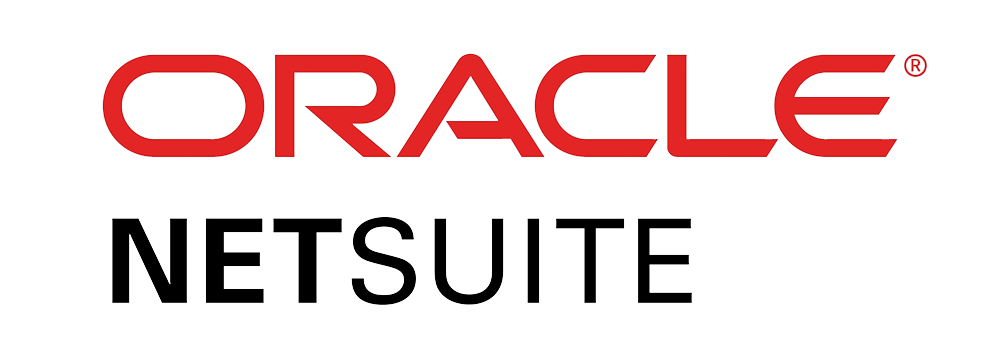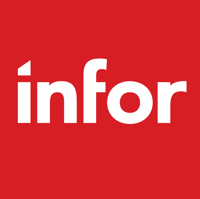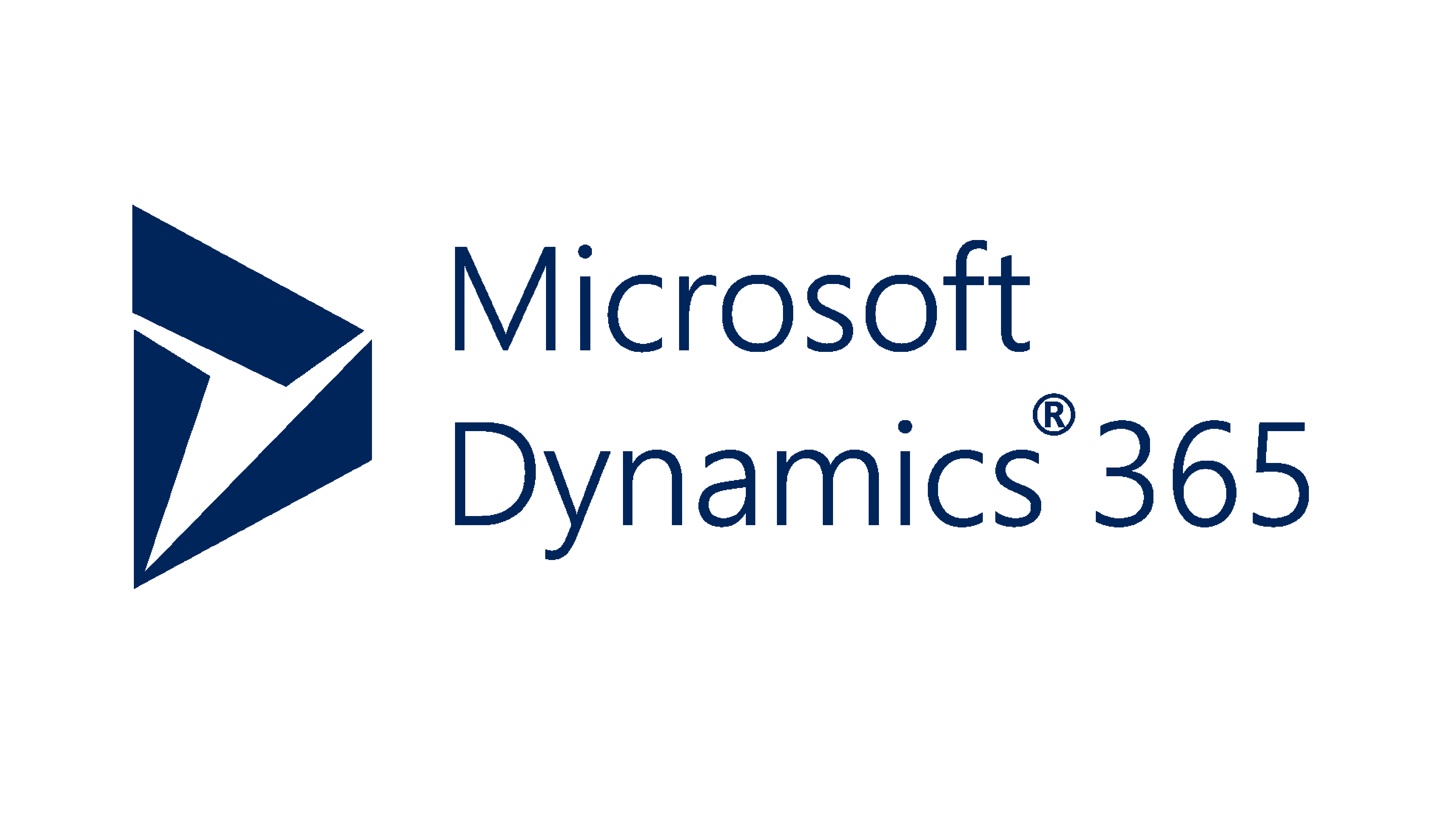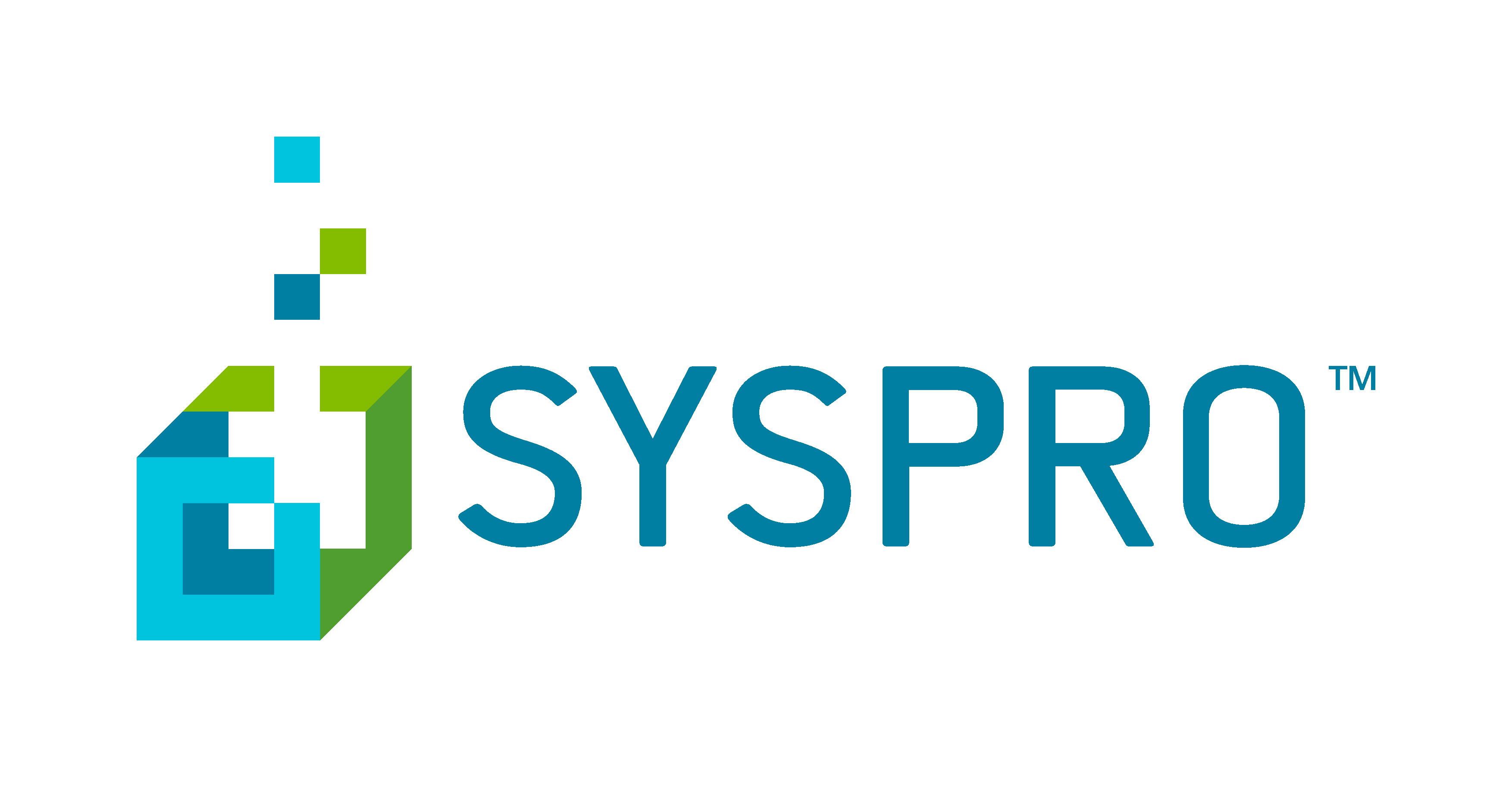Food Manufacturing Software
ERP systems can boost productivity and efficiencies for food manufacturing companies, plus enable them to operate compliantly and across borders with ease.
At ERP Research we provide independent advice and analysis for the best food manufacturing ERP software, helping you find the best food manufacturing software, faster.
Top 10 Food and Beverage ERP Systems
Learn everything you need to know about the best ERP solutions for food manufacturers in our detailed solution comparison report. We compare top food and beverage manufacturing ERP software such as SAP, Microsoft, Oracle and more.
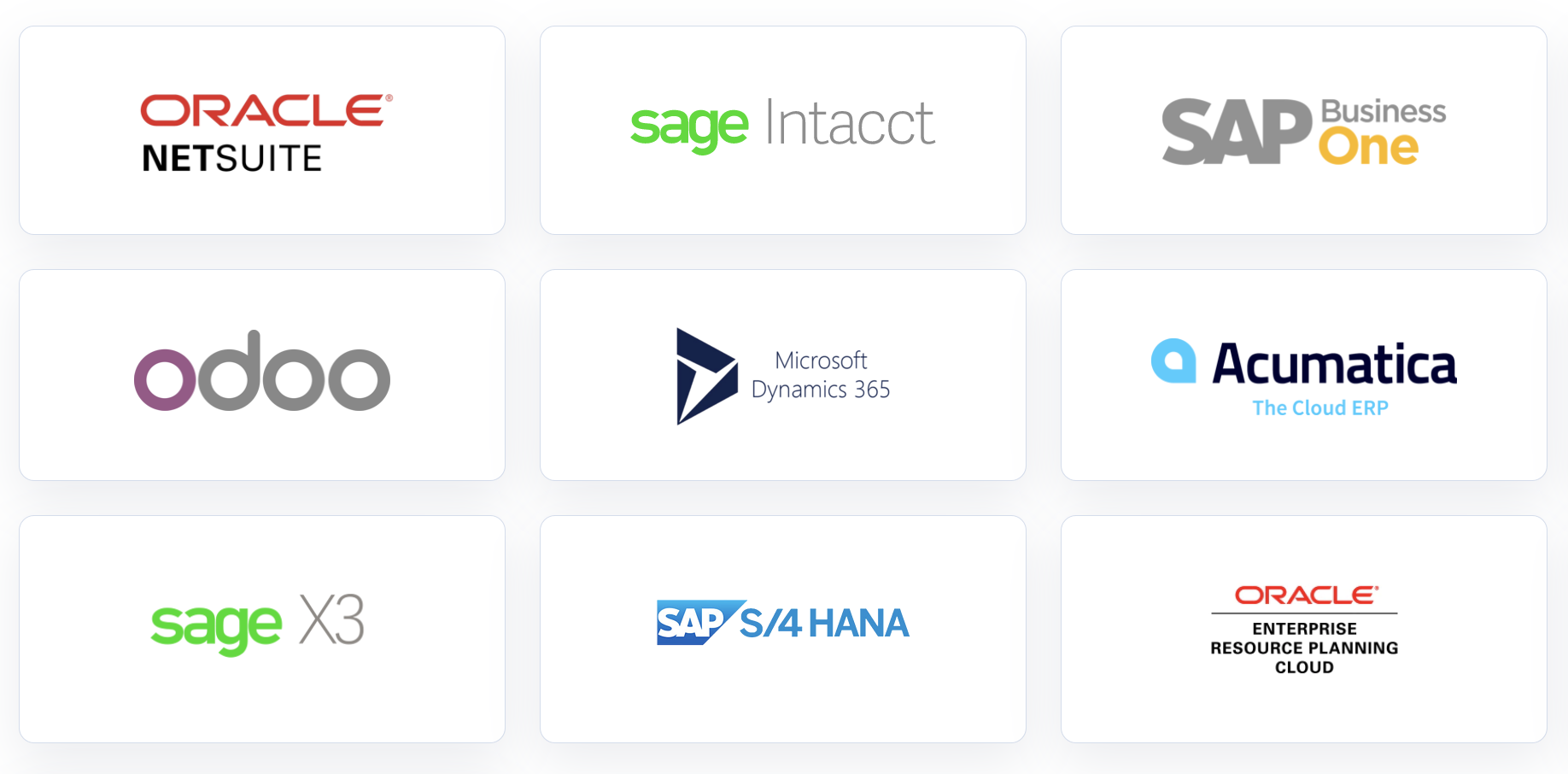
Top ERP for Small Business Food Manufacturers (SMB & SME)
Small and medium sized (SME) manufacturing firms need ERP systems which are cost effective, fast to implement and scalable.
Many manufacturing organizations have adopted ERP solutions such as these to handle their growth efficiently:
Infor CloudSuite Industrial (Syteline)
Infor CSI is a popular food ERP solution for small and medium sized food manufacturing companies in process manufacturing industries. See how Infor compares.
SAP Business One
SAP Business One has developed many food manufacturing specific add-ons for various manufacturing sub-verticals including food and beverage production, making it a strong choice for small manufacturers.
Oracle Netsuite
Netsuite has become a popular ERP system choice for small and medium food manufacturers that are looking for a Cloud based ERP system to manage growth across sales, production, supply chain, inventory and financials.
Odoo
Odoo is an open source ERP platform which has been used by small and fast growing food manufacturing organizations looking to unify their processes.
SAP Business ByDesign
SAP Business ByDesign is a Cloud ERP solution that serves as a stable solution with over 30 out of the box processes for food manufacturing firms.
Microsoft Dynamics Business Central
Microsoft Dynamics 365 Business Central is used by SMB & SME food manufacturers.
SYSPRO ERP
SYSPRO is a popular ERP solution for small business manufacturers in multiple industries, with a variety of process and discrete manufacturing capabilities.
Acumatica
Acumatica is a powerful Cloud based ERP system which is used by SMB and small business manufacturers around the world and provides deep manufacturing ERP capabilities.
IFS Applications
IFS Applications is a strong ERP solution for manufacturers in the small and medium sized business space and is used by worldwide brands.
Top Food Manufacturing ERP for Large Enterprises
What are some of the best ERP systems for large food and beverage manufacturers? See our highlighted best ERP software solutions for large manufacturing companies below:
SAP S/4 HANA
SAP S/4 HANA for many is the gold standard ERP solution for large manufacturers. It provides deep industry capabilities for manufacturing and offers the largest customer base of global manufacturing organizations.
Microsoft Dynamics 365
Microsoft Dynamics 365 has become extremely popular with manufacturing organizations that need a greater degree of flexibility in their ERP system. Microsoft has also heavily invested in AI & ML capabilities to improve automation and efficiencies.
Oracle ERP Cloud
Oracle ERP Cloud is a popular ERP solution for the food and beverage industry, particularly in food processing industries. ERP Cloud offers integrated functionality across large enterprises including supply chain, production, HCM, financials and more.
Best Cloud ERP for Food & Beverage Manufacturing
What are some of the best Cloud ERP systems for food and beverage manufacturers? See our highlighted best ERP software solutions for food manufacturing that are Cloud based:
SAP S/4 HANA
SAP S/4 HANA is one of the best Cloud ERP for manufacturing and is used by many manufacturing companies in the food, discrete, automotive and other manufacturing industries. This Cloud ERP solution is available in private or public Cloud deployments.
Microsoft Dynamics 365
Microsoft Dynamics 365 is a robust Cloud ERP for manufacturing system which comes in several editions built for small and large businesses alike. Dynamics is one of the best Cloud ERP for manufacturing, available in both private and public Cloud.
Oracle ERP Cloud
Oracle ERP Cloud is a popular ERP solution amongst manufacturers, particularly in process industries. ERP Cloud offers integrated functionality across large enterprises including supply chain, production, HCM, financials and more.
SAP Business ByDesign
SAP Business ByDesign is a fully SaaS Cloud ERP for manufacturing solution that serves as a stable solution with over 30 out of the box processes for manufacturing firms.
Oracle Netsuite
Netsuite has become a popular ERP system choice for small and medium manufacturers that are looking for a Cloud based ERP system to manage growth across sales, production, supply chain, inventory and financials.
Infor CloudSuite Industrial (Syteline)
Infor CSI is a popular Cloud ERP solution for small and medium sized manufacturing companies in discrete and process manufacturing industries. See how Infor compares.
Speak to an Independent ERP Expert
ERP Research helps you to:
✅ Shortlist ERP software & implementation partners.
✅ Arrange custom ERP demonstrations and quotes.
✅ Access our huge library of ERP reports, templates and project documentation.
Users Per Month:
18,000+
ERP Projects:
4000+
Industries Covered:
22+
SAP Business One
SAP Business One is a powerful software solution that can be utilized by food manufacturers to streamline their operations and enhance their overall productivity. With a wide range of features specifically designed for the food industry, including inventory management, production planning, and recipe management, SAP Business One provides an all-in-one platform for managing every aspect of your business. Additionally, the software enables you to monitor and respond to key performance indicators, such as inventory levels and production output, in real-time, allowing you to make informed decisions with greater speed and accuracy. Whether you're a small startup or a large-scale operation, SAP Business One can help take your food manufacturing business to the next level.
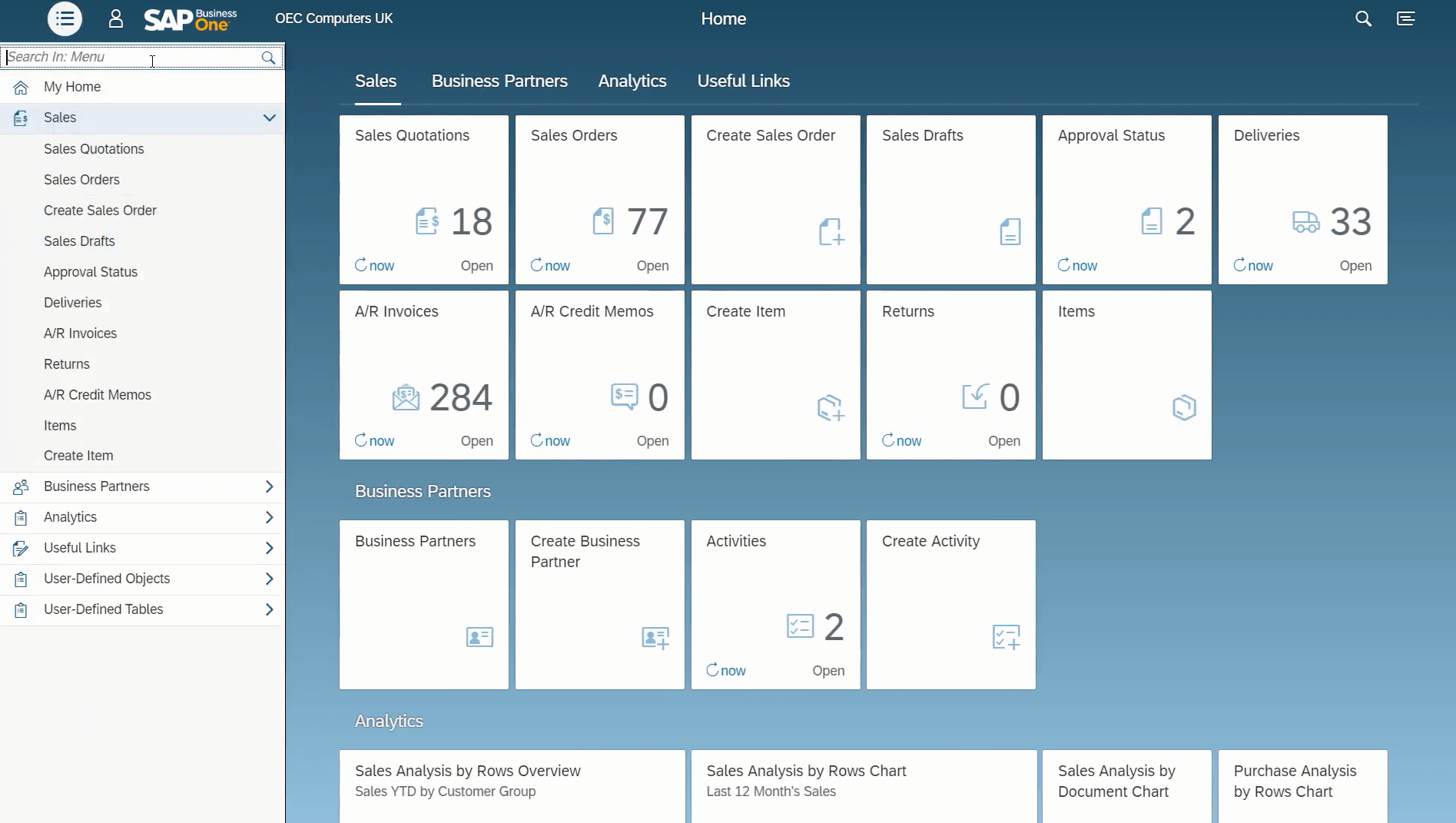
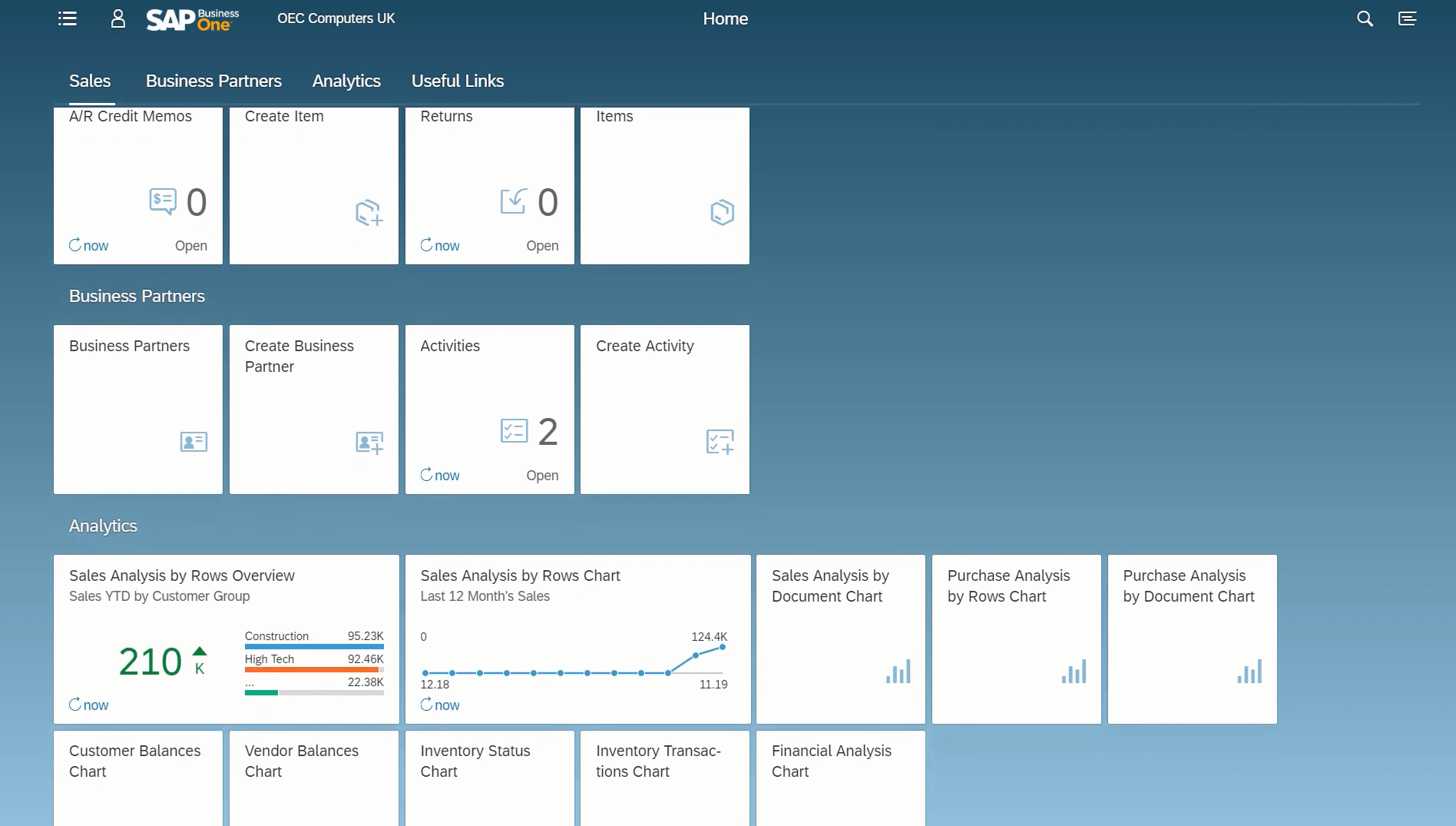
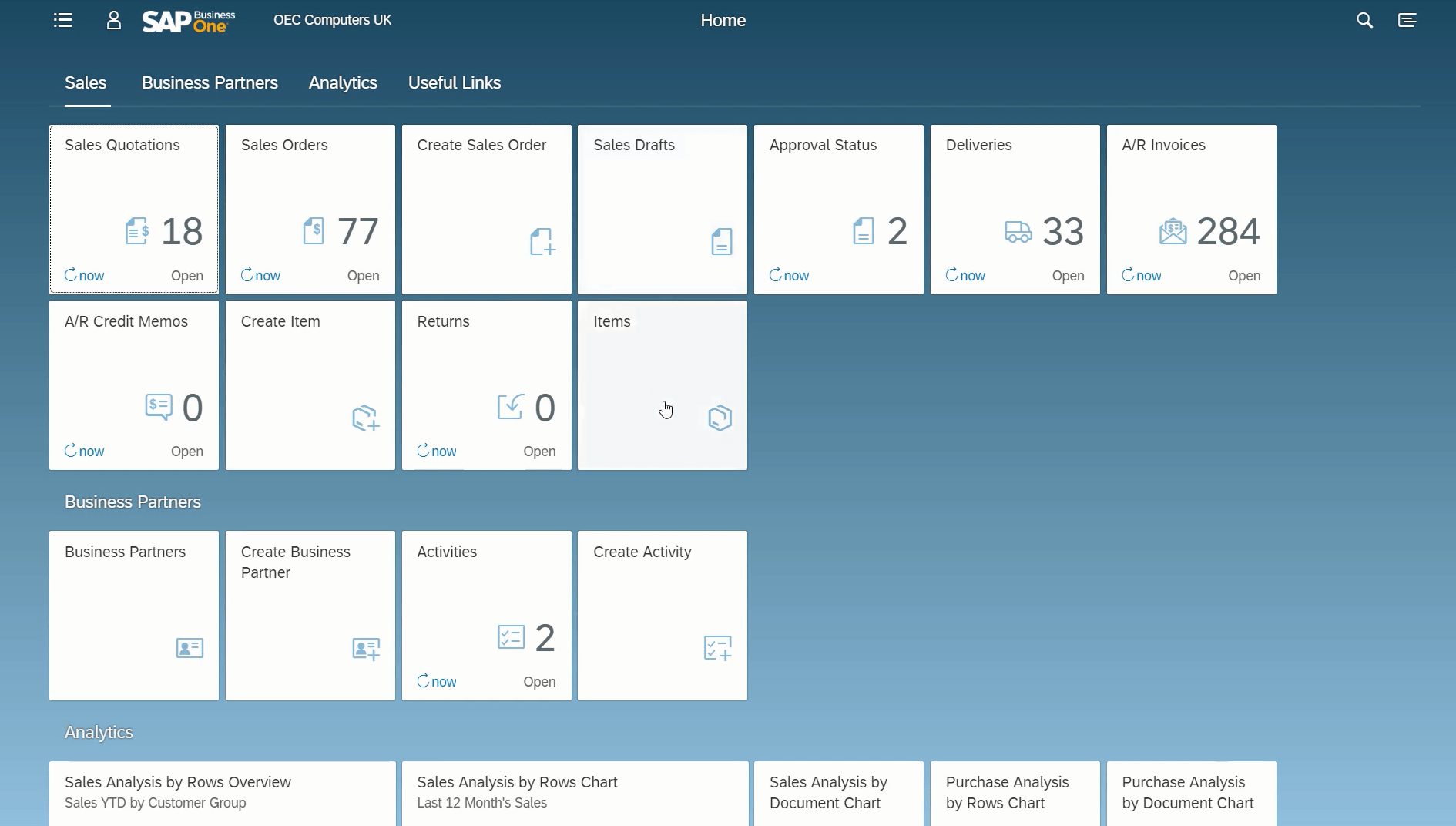
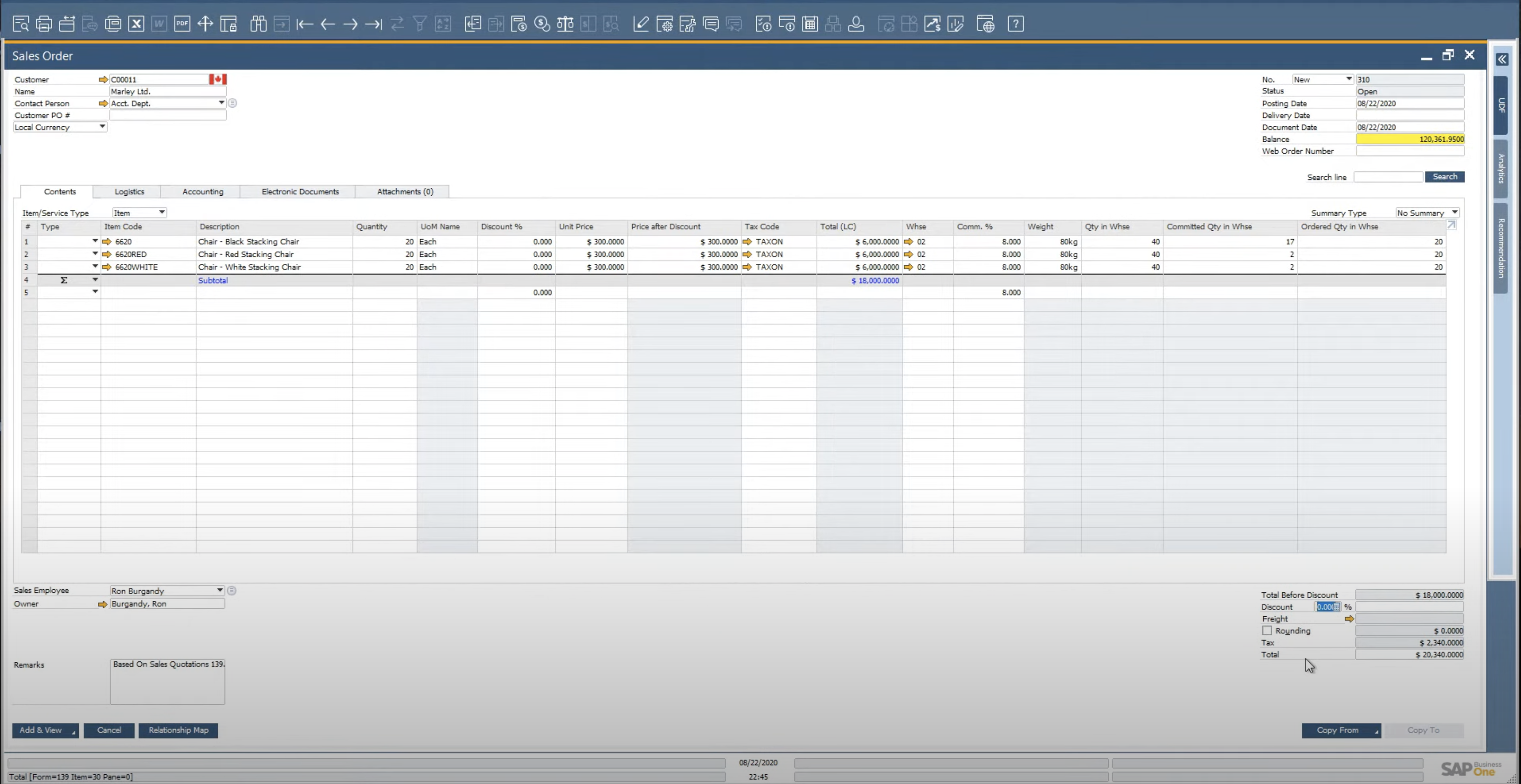
Acumatica
If you're in the food production industry, you know that tracking inventory, managing recipes, and maintaining food safety regulations is essential. This is where Acumatica ERP comes in to provide a comprehensive solution.
Inventory management is crucial for food production. With Acumatica's ERP system, you can track raw materials, packaging, and finished goods in real-time. This helps you manage inventory levels, prevent stockouts, and reduce waste.
Recipe management is another feature that Acumatica ERP offers. You can create and manage recipes, including ingredients, quantities, and instructions. This makes it easy to track the cost of goods sold, manage inventory, and maintain compliance with food safety regulations.
Acumatica ERP also offers quality control features that help you maintain food safety and comply with regulations. You can track lot and batch numbers, expiration dates, and quality control test results. This helps you quickly identify any issues and take corrective action to prevent contamination, waste, and recalls.
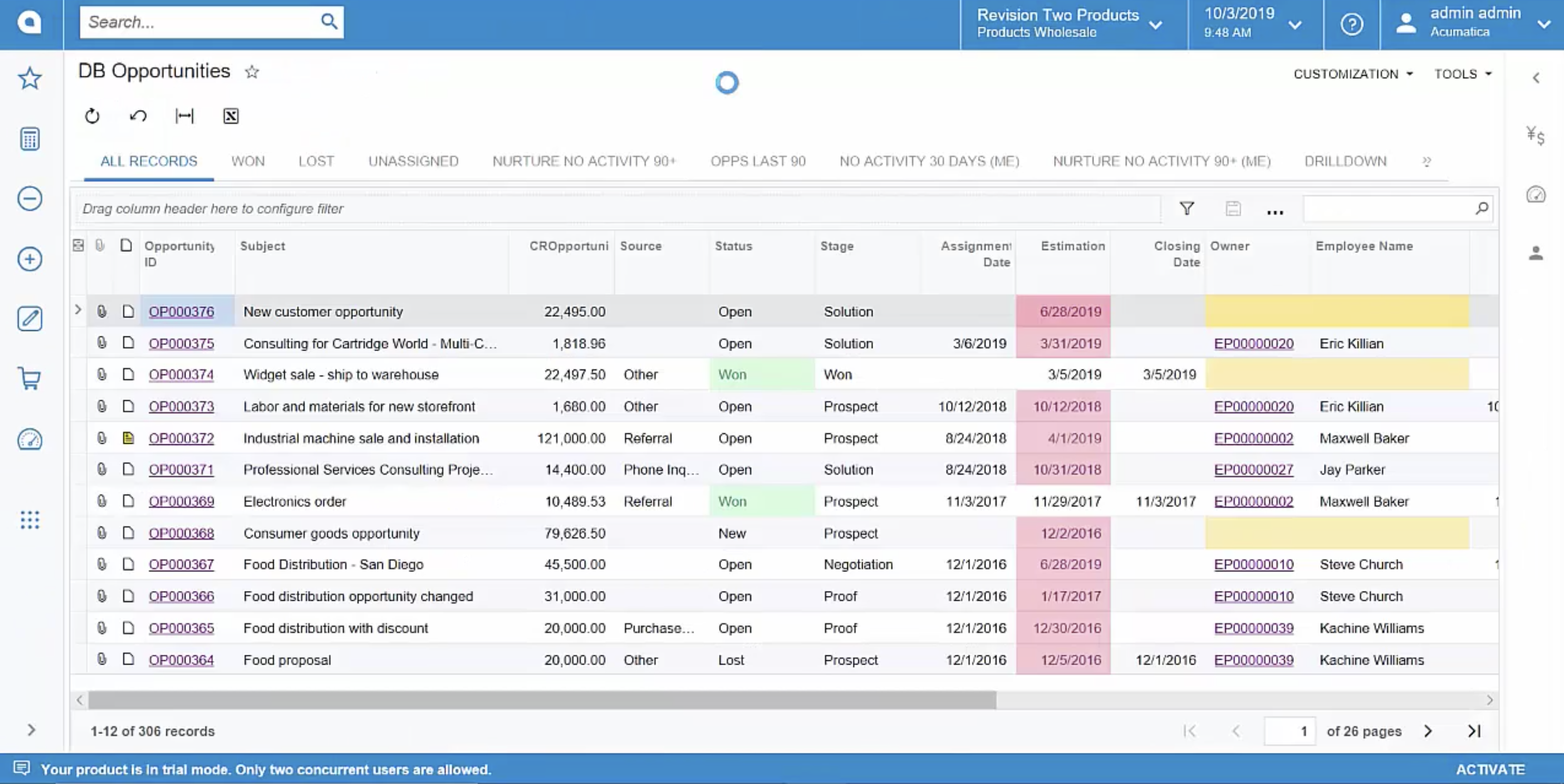
NetSuite
NetSuite can be used as an ERP (Enterprise Resource Planning) for food manufacturing by providing a comprehensive suite of features and functionalities that can help streamline and optimize the various processes involved in the food manufacturing process. Some of the ways that NetSuite can be used as an ERP for food manufacturing include:
-
Recipe Management: NetSuite allows you to manage and track recipes, ingredients, and production costs. This feature can help you ensure that your recipes are consistent, accurate, and cost-effective, which is critical in the food manufacturing industry.
-
Quality Control: NetSuite provides robust quality control features that can help you ensure that your products meet the highest standards of quality and safety. These features include quality testing, lot tracking, and compliance management.
-
Inventory Management: NetSuite's inventory management features allow you to track raw materials, work in progress, finished goods, and packaging materials. You can also manage lot and serial numbers, expiration dates, and other critical inventory information.
-
Manufacturing Operations: NetSuite provides tools to help manage production schedules, work orders, and shop floor operations. You can use these features to optimize your production processes and improve efficiency.
-
Sales and Order Management: NetSuite's sales and order management features allow you to manage customer orders, pricing, and promotions. You can also use these features to track customer preferences and buying patterns, which can help you improve customer satisfaction and retention.
-
Financial Management: NetSuite's financial management features can help you manage your accounting, budgeting, and forecasting. You can also use these features to track profitability, analyze costs, and manage cash flow.
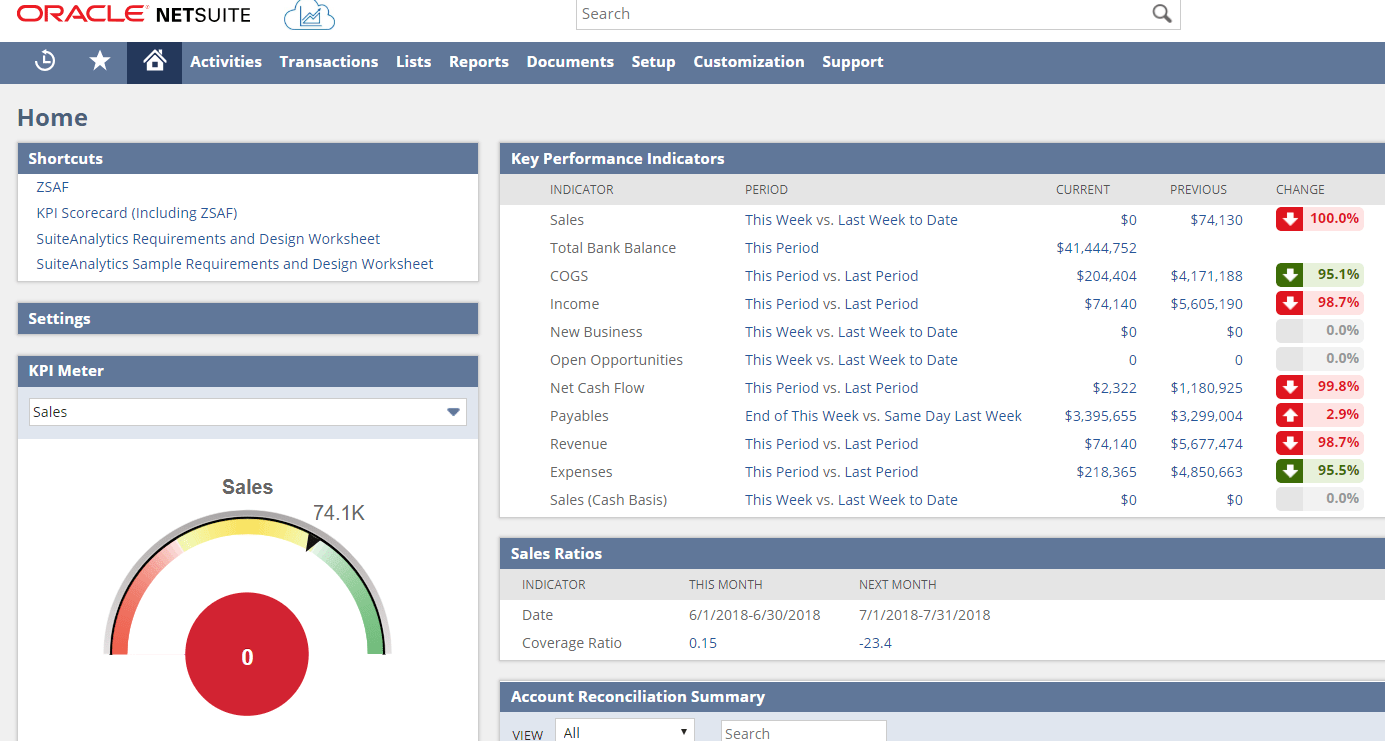
Infor CloudSuite Industrial
Infor CloudSuite Industrial (CSI) can be used as an ERP system for food companies in several ways. Here are some key features and benefits of using CSI for food companies:
-
Product traceability: Food companies need to track their products from the farm to the table to ensure quality and safety. CSI offers lot tracking and traceability features that allow companies to track products through every stage of production and distribution.
-
Recipe management: Food companies need to manage recipes for their products, and CSI offers a recipe management module that allows them to create, modify, and track recipes for all their products.
-
Quality control: CSI offers quality control features that help food companies ensure that their products meet the highest standards of quality and safety. The system can automatically generate quality control tests and inspections and alert managers to any issues.
-
Inventory management: Food companies need to manage their inventory levels carefully to avoid waste and spoilage. CSI offers inventory management features that allow companies to track their inventory levels in real-time and optimize their ordering and storage processes.
-
Financial management: CSI offers financial management features that help food companies manage their finances, including accounts payable and receivable, general ledger, and financial reporting.
-
Sales and order management: Food companies need to manage their sales and orders efficiently to ensure timely delivery and customer satisfaction. CSI offers sales and order management features that allow companies to track orders, manage sales quotes and pricing, and automate invoicing and billing.

Microsoft Dynamics 365
Microsoft Dynamics 365 is a cloud-based business application platform that offers a suite of tools to manage various business operations. It can be used in food production to improve efficiency, streamline processes, and increase profitability. Here are some ways that Microsoft Dynamics 365 can be used in food production:
-
Production Planning and Scheduling: Microsoft Dynamics 365 can be used to plan and schedule production in the food industry. It can help food manufacturers to optimize their production schedules, prioritize orders, and manage their inventory levels.
-
Quality Control: Quality control is an important aspect of food production. Microsoft Dynamics 365 can be used to track and manage quality control processes, including inspections, testing, and corrective actions.
-
Supply Chain Management: Microsoft Dynamics 365 can be used to manage the entire supply chain in the food industry. This includes managing suppliers, tracking inventory levels, and ensuring timely delivery of raw materials and finished products.
-
Traceability and Compliance: The food industry is subject to strict regulations around food safety and traceability. Microsoft Dynamics 365 can be used to track products through the entire production process, from raw materials to finished goods, and ensure compliance with regulatory requirements.
-
Customer Relationship Management: Microsoft Dynamics 365 can be used to manage customer relationships in the food industry. It can help food manufacturers to track customer orders, manage customer inquiries and complaints, and analyze customer data to improve customer satisfaction.
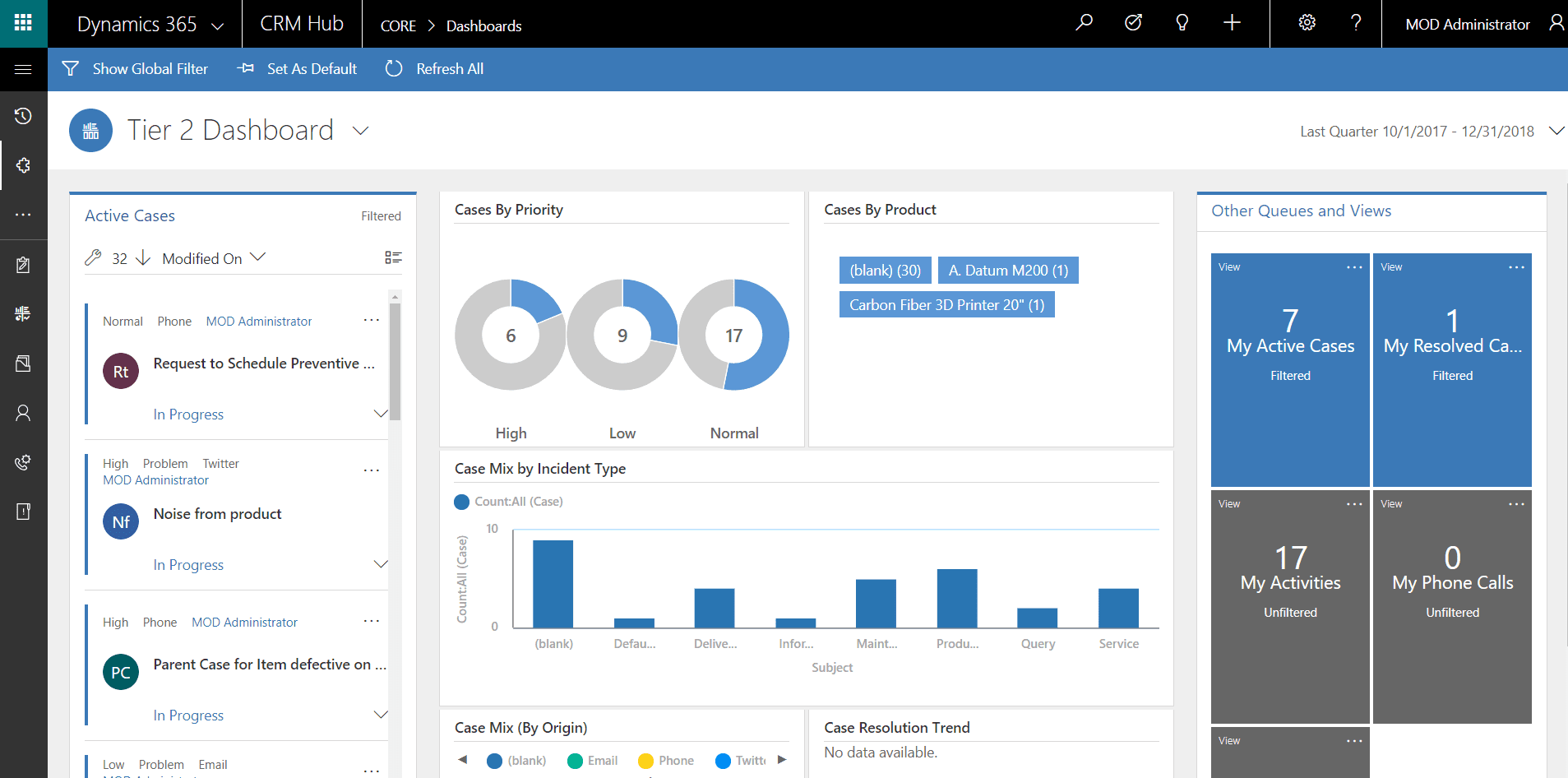
SYSPRO ERP
SYSPRO is an enterprise resource planning (ERP) software that can be used to manage various aspects of food manufacturing, including production planning, inventory management, quality control, and compliance. Here are some ways in which SYSPRO can be used as a food manufacturing software:
-
Recipe Management: SYSPRO can be used to manage recipes for different food products, including ingredient lists, batch sizes, and cooking instructions. This allows food manufacturers to standardize their production processes and ensure consistency in product quality.
-
Production Planning: SYSPRO can help food manufacturers plan their production schedules based on demand forecasts, inventory levels, and resource availability. This can help manufacturers optimize their production processes and minimize waste.
-
Inventory Management: SYSPRO can be used to track inventory levels of raw materials, work-in-progress, and finished goods. This can help food manufacturers maintain optimal inventory levels and avoid stockouts or overstocking.
-
Quality Control: SYSPRO can be used to manage quality control processes, including product testing, inspection, and approval. This can help food manufacturers ensure that their products meet regulatory requirements and customer specifications.
-
Traceability: SYSPRO can be used to track the movement of ingredients and products throughout the supply chain. This can help food manufacturers quickly identify and address any quality or safety issues that arise.
-
Compliance: SYSPRO can help food manufacturers comply with various regulatory requirements, including food safety regulations, labeling requirements, and environmental regulations.

What is the best ERP for manufacturing in 2021?
We review the best ERP software for manufacturing? We compare and rank the best ERP software for manufacturers in 2021 including SAP Business One, Netsuite, Infor & more.
ERP Requirements Gathering (RFI, RFP) Template Excel
Start your ERP evaluation process with our RFI & RFP Excel template for the engineering industry.
ERP Project Budget Calculator Template
Calculate the costs of your manufacturing ERP project with our prebuilt budget calculator.
Top Food ERP Modules & Functionality
The top ERP software for food manufacturers can include a variety of modules and functionalities that allow manufacturing companies to scale and be more efficient. We review some of the key functionality for the best food and beverage manufacturing ERP software below:
Accounting and Financials
The best ERP for manufacturing has to include accounting and financials capabilities across multiple geographies and business units.
Purchasing
Purchasing needs to be controlled and the best ERP software for manufacturing allows you to do just this.
Production
Plan your supply chain and manage your manufacturing process in one wholistic ERP system including bill of materials management and kits.
Engineering Management
Manufacturing ERP software needs tight engineering capabilities to quickly iterate products whilst maintaining efficiencies.
Inventory Management
ERP systems for manufacturing allow for real time insights into inventory levels across your organization to drive efficiency.
Asset Management
Manage business assets with ERP for manufacturing to easily capitalise and monitor your assets.
Reporting and dashboards
Develop a single view of your manufacturing business in order to increase transparency, decision-making and ultimately drive results.
Expenses Management
Automate expenses requisitions and approvals for your sales team or manufacturing within your ERP system.
Customer Service
Customer service is a crucial part of top ERP software for manufacturing. Tie in data across production, sales and more with manufacturing ERP.
Sales management
Track & plan sales pipeline, score leads, prospects and forecast opportunities in real-time across territories, accounts and teams.
Customisation
Flexible ERP software that's built on an open and extensible foundation, allowing you to choose the features that suit your business needs.
Mobility
Access your ERP data at any time so you're more available to customers and take advantage of unexpected opportunities as they surface.
Development tools
ERP software for the manufacturing industry features all of the tailored solutions an organization needs to design, build and document their projects faster.
Updates and maintenance
Backed by the consistency of market-leading vendors, ERP software regularly updates to ensure an optimal user experience.
Versatile deployments
Connects customers, partners, and employees through real-time digital relationships to improve the way you do business.
Unlimited support
ERP implementation is a longterm strategic partnership and vendors provide free unlimited technical support for clients.
Food & Beverage Manufacturing Industry ERP Guide
When considering ERP software for food and beverage, savvy ERP buyers tend to have a lot of questions. Below we answer some of the most frequently asked questions around food manufacturing ERP:
What is food and beverage ERP software?
ERP for food and beverage processing and manufacturing enables companies to centralise data and business processes into one ERP platform to support faster transfer of data between departments and decision making.
ERP software for the food and beverage industry typically includes modules for sales, production, quality management, accounting and financials and often warehouse management, stock and procurement.
Which food and beverage companies use ERP software?
We see food and beverage manufacturers of all sizes and around the world using ERP software, ranging from startups to small businesses (SMB) and small and medium enterprises (SME) through to large multinationals with hundreds of thousands of employees.
Although almost all food manufacturers will or intend to implement ERP software at some point in their journey, many food and beverage manufacturers will use different ERP software or adopt different IT strategies according to their needs.
Some larger food and beverage manufacturing companies choose to run large single instance ERP systems that manage multiple brands, legal entities and business units in one suite. Other, more federated manufacturers may choose to run multiple ERP solutions within their group.
What is the best ERP software for food and beverage?
There are many ERP solutions for companies in the food industry and each is designed for companies in different industries and food manufacturing sub-sectors and to suit companies of different sizes.
The best possible food and beverage manufacturing ERP software on the market may not be cost effective for your business and may do more to hinder than help you. We therefore recommend evaluating multiple potential manufacturing ERP solutions to work out which one suits you best. You can check our recommended food and beverage ERP solutions for businesses of different sizes above or use our ERP comparison tool to find ERP solutions based on your industry, business size or choice of deployment.
What is the best manufacturing ERP software for SMB and small businesses?
There are dozens of food and beverage ERP systems available for small business manufacturers. Some of the most popular ERP software for SMB food manufacturers is SAP Business One, Odoo, NetSuite, Acumatica, Infor CloudSuite Industrial, SAP Business ByDesign and Syspro.
What is the best ERP for food processing?
Food processing ERP software has different needs to discrete manufacturing software. In particular, the yield management and measurement capabilities need to be geared towards your particular use case.
Some of the best food process manufacturing ERP software solutions are supplied by vendors such as SAP, Infor & Microsoft. Check our solution briefs above to find out more.
What are the benefits of food manufacturing ERP software?
ERP software for food manufacturers can provide many benefits including:
- Reducing stock holdings by optimising food and beverage supply chains.
- Better visibility and reporting across your business.
- Less quality management issues.
- Faster product recall and fault detection processes.
- Enhanced customer satisfaction.
- Lower administrative and accounting costs.
- Higher adherence to compliance across accounting, quality and more.
- Lower IT and systems integration costs.
What are the features and modules of food manufacturing ERP?
Enterprise Resource Planning (ERP) systems for the food and beverage industry are designed to integrate and optimize various business processes across the supply chain. They address the unique needs of this sector, which include compliance with food safety regulations, managing perishable products, and tracking complex production processes. Here are some of the typical features of a Food and Beverage ERP:
-
Recipe and Formula Management: Helps in managing product recipes/formulations, including quantities, ingredients, and process instructions. It allows easy scaling of batches and version control.
-
Inventory Management: Tracks raw materials, finished products, and packaging materials. This feature often includes FIFO (First-In, First-Out) or FEFO (First Expired, First Out) inventory management to optimize stock rotation and reduce waste.
-
Lot and Batch Traceability: Enables tracking of each ingredient from its source to the final product and vice versa. This is crucial for quick recalls and compliance with food safety standards.
-
Quality Control: Monitors the quality of products at various stages of production. This includes setting quality parameters, scheduling quality checks, and recording results.
-
Production Scheduling: Plans and schedules production runs based on demand, machinery availability, and resource constraints.
-
Demand Forecasting: Predicts future sales using historical data, helping businesses to plan production and inventory levels more efficiently.
-
Compliance and Regulatory Reporting: Assists businesses in meeting food safety standards such as HACCP, FDA, FSMA, and others. It also helps generate necessary reports for regulatory bodies.
-
Shelf Life Management: Monitors expiration dates of perishable items to reduce waste and ensure that products are sold or used before they go bad.
-
Sales and Distribution: Manages order processing, customer relationships, shipping, and invoicing.
-
Cost Tracking and Analysis: Helps in determining the cost of production, factoring in raw material costs, labor, overhead, and other expenses.
-
Supply Chain Management: Optimizes procurement processes, vendor management, and monitors supplier performance.
-
Warehouse Management: Streamlines warehouse operations like storage, picking, packing, and shipping.
-
Equipment Maintenance: Schedules regular maintenance and inspections of machinery and equipment to reduce unexpected downtimes.
-
Business Intelligence and Analytics: Provides insights into business performance, sales trends, profitability, and other key metrics.
-
Financial Management: Integrates with accounting functionalities to track sales, costs, profits, and other financial data.
-
Human Resources Management: Manages employee data, attendance, payroll, and training.
-
Customer Relationship Management (CRM): Helps in tracking customer interactions, sales history, and feedback.
-
Mobile Accessibility: Allows users to access ERP functionalities on the go through mobile devices.
Many Food and Beverage ERP solutions are modular, which means businesses can choose the functionalities they need and customize the system according to their requirements. When selecting an ERP system for this industry, it's essential to consider the specific challenges and needs of the food and beverage sector.
How does food manufacturing ERP help with compliance?
RP (Enterprise Resource Planning) systems can be invaluable to food manufacturers in ensuring compliance with local, national, and international regulations. Here's how ERP systems assist food manufacturers in maintaining compliance:
-
Lot and Batch Traceability: One of the primary compliance requirements for food manufacturers is the ability to trace every ingredient from its source through to the finished product and vice versa. In case of a recall or any other issue, manufacturers must quickly identify where a particular item originated, where it was used, and where the final product was distributed. ERP systems provide tools for detailed traceability to track and manage lot and batch information efficiently.
-
Documentation and Record Keeping: Regulatory bodies often require rigorous documentation about production processes, ingredient sourcing, quality checks, and more. ERP systems centralize and automate the storage of these records, making it easier to retrieve and review them when needed.
-
Quality Control Management: ERP systems allow manufacturers to set and monitor quality parameters. Scheduled quality checks can be programmed, and results can be recorded. This ensures that substandard products don't reach the market and provides a record of quality checks for compliance purposes.
-
Shelf Life Management: For perishable products, it's crucial to monitor expiration dates to ensure product safety. ERP systems can notify managers of products nearing their expiration, helping reduce the risk of selling or using expired items.
-
Regulatory Reporting: Many regulations require periodic reporting to demonstrate compliance. ERP systems can automate the generation of these reports, ensuring that they are accurate and timely.
-
Recipe and Formula Management: ERP systems can ensure that every product batch follows the approved recipe or formula, maintaining consistency and ensuring that no prohibited or restricted substances are included in the production.
-
Supplier Management: ERP systems help in maintaining detailed records of suppliers, ensuring that they also meet compliance standards. This is crucial because the quality and safety of raw materials directly impact the final product.
-
Audit Readiness: With all the data stored centrally and processes streamlined, manufacturers are always ready for audits. They can provide comprehensive data to auditors at a moment's notice.
-
Labeling and Packaging: ERP systems can assist in ensuring that product labels meet regulatory requirements, such as ingredient listings, allergen warnings, nutritional information, and other essential details.
-
Continuous Monitoring: Many ERP systems have dashboards and alert systems that notify relevant personnel when there's a deviation from set standards or if there's a potential compliance issue.
-
Training and Certification Records: For certain regulations, employees need specific training or certifications. ERP systems can track employee training, certifications, and their expiry dates, ensuring that only qualified individuals are involved in critical processes.
-
Waste Management: Some regulations focus on environmental concerns, including waste disposal. ERP systems can help track waste and ensure its proper disposal in compliance with regulations.
By integrating all these features and maintaining a centralized record system, ERP solutions provide food manufacturers with a holistic approach to compliance. When implementing an ERP system, it's essential for manufacturers to choose a solution that aligns with the specific regulations and standards of their industry and region.
How much does food manufacturing ERP cost?
The cost of implementing a Food and Beverage ERP system can vary widely based on a range of factors. Here's a breakdown of the aspects that influence the cost:
-
Size and Scope of the Business: A multinational corporation with multiple production facilities will have a more complex and costly implementation than a small local producer.
-
Functionality and Modules: ERP systems are often modular. If a business only needs basic features like inventory management and financials, it may cost less than a system with advanced features such as advanced analytics, IoT integration, or supply chain management.
-
Customization: Off-the-shelf ERP solutions may not fit every business's unique needs. Customizing the software to better fit the company's processes can add to the costs.
-
Software Licenses: Depending on the ERP vendor and licensing model, there can be upfront costs for purchasing the software or ongoing subscription fees.
-
Implementation Services: Implementing an ERP system requires expert help. This can include system configuration, data migration, customization, and more. These services are typically provided by the ERP vendor or third-party consultants and can be a significant portion of the total cost.
-
Training: Employees need to be trained to use the new system effectively. This can involve formal training sessions, workshops, and ongoing support.
-
Hardware and Infrastructure: If the ERP is hosted on-premises, there might be costs associated with servers, data storage, and other infrastructure. Cloud-based ERP solutions, on the other hand, may have different cost structures but usually don't require significant hardware investments.
-
Maintenance and Support: Most ERP vendors charge annual maintenance fees, which cover software updates, technical support, and other ongoing services.
-
Integration: If the ERP needs to integrate with other existing systems (e.g., CRM, specialized production equipment, third-party logistics platforms), there may be additional costs.
-
Data Migration: Transferring data from old systems to the new ERP can be complex and might require specialized services or tools.
-
Change Management: Beyond the tangible costs of software and services, organizations may invest in change management strategies to ensure smooth transitions and acceptance by employees.
-
Duration: A prolonged implementation process can increase costs due to extended consulting fees, delays in realizing ROI, and potential disruptions.
To give a ballpark figure, small to mid-sized businesses can expect to pay anywhere from $10,000 to $500,000+ for a complete ERP implementation, while larger enterprises may spend anywhere from $1 million to several million dollars.
How long does it take to implement food and beverage ERP?
The duration to implement a Food and Beverage ERP system can vary significantly based on several factors. Here's a breakdown of the aspects that influence the timeline:
-
Size and Scope of the Business: Implementation in a large multinational corporation with several production facilities will take longer than in a small local producer due to the sheer complexity and number of processes involved.
-
Complexity of the Implementation: Implementing core modules like finance and inventory might be quicker than a full suite that includes advanced analytics, supply chain management, and quality control.
-
Customization: If the ERP system requires significant customization to fit the company's unique needs, the process will be lengthier compared to using an out-of-the-box solution.
-
Data Migration: Transferring data from old systems to the new ERP, especially if the data needs cleaning or transformation, can be time-consuming.
-
Training: The time required to train employees on the new system will depend on its complexity and the number of users. This training can occur in phases as each module or department goes live.
-
Integration with Other Systems: If the ERP needs to integrate with other existing systems (e.g., CRM, specialized production equipment, third-party logistics platforms), this can extend the timeline.
-
Change Management: Effective change management can sometimes slow down the initial implementation pace but is essential for ensuring the ERP's long-term success.
-
Vendor Experience and Expertise: An experienced ERP vendor or implementation partner who knows the food and beverage industry can expedite the process because they're familiar with common challenges and best practices.
-
Company Commitment: The availability and commitment of the internal team (including top management) can impact the speed of implementation. A dedicated internal team working closely with the vendor can speed up decision-making and problem resolution.
-
Testing: Before going fully live, the system will need to be tested thoroughly, which can take time, especially if issues arise that need addressing.
-
Project Approach: The approach to implementation (big bang, where everything goes live at once, vs. phased, where the system goes live in stages) can influence the timeline.
On average:
- Small businesses: 3-6 months.
- Mid-sized businesses: 6-12 months.
- Large enterprises: 12-24 months, or even longer.
Whats the return on investment of a food manufacturing ERP?
The Return on Investment (ROI) for an ERP system in the food manufacturing industry can be significant, but it's also complex and multi-faceted. Measuring the ROI involves looking at both the tangible and intangible benefits against the total cost of ownership (including purchase, implementation, training, maintenance, etc.). Here are some areas where food manufacturers can realize a return on their ERP investments:
-
Operational Efficiency: One of the primary reasons for implementing an ERP system is to streamline operations. By automating repetitive tasks, optimizing production scheduling, and reducing manual data entry, companies can achieve substantial time and cost savings.
-
Inventory Management: ERP systems help in optimizing inventory levels, reducing carrying costs, minimizing waste due to expiration, and improving stock rotation.
-
Improved Decision Making: With real-time data and analytics, management can make more informed decisions about production, sales, purchasing, and more. This leads to better resource allocation and strategy formulation.
-
Quality Control: Enhanced tracking and quality control features can lead to fewer product recalls, returns, and wastage, leading to cost savings and a stronger reputation in the market.
-
Regulatory Compliance: Efficient compliance management reduces the risk of penalties, recalls, and other costs associated with non-compliance. An ERP system makes it easier to track, report, and ensure adherence to food safety and quality standards.
-
Reduced Lead Times: Efficient production scheduling and optimized supply chain management can lead to faster order-to-delivery times, enhancing customer satisfaction and potentially increasing sales.
-
Sales and Customer Management: Improved forecasting, order processing, and customer relationship management can boost sales and enhance customer loyalty.
-
Waste Reduction: Efficient raw material usage, production scheduling, and inventory management can lead to a significant reduction in waste – a crucial factor in the food industry where margins can be thin.
-
Staff Productivity: With better tools at their disposal and fewer manual tasks, staff can focus on more value-added activities.
-
Intangible Benefits: These include enhanced organizational agility, better inter-departmental collaboration, improved employee morale, and a strengthened reputation in the market.
When calculating ROI, the formula is:
ROI=(Net Benefit of the Investment−Cost of the Investment)Cost of the Investment×100%ROI=Cost of the Investment(Net Benefit of the Investment−Cost of the Investment)×100%
While the cost of the investment (ERP system) is relatively easy to determine, quantifying the net benefits can be more challenging due to the many intangible factors.
Typically, organizations may start to see a positive ROI within 1 to 3 years post-implementation, but this can vary based on the initial investment, the effectiveness of the implementation, and the extent to which employees adopt and leverage the new system.
For a more accurate ROI assessment, organizations should conduct a detailed cost-benefit analysis, considering both quantifiable and qualitative benefits, before and after ERP implementation.
Start Your ERP Journey With ERP Research
We help food manufacturing firms to prepare for ERP change by guiding them through each stage of the process:
-
Build An ERP Business Case 2-3 weeksA solid business case is a foundation you need if you are going to persuade your organization to consider enterprise resource planning (ERP) implementation. Download Business Case Template
-
Compare ERP Vendors 2-3 weeksIt’s critical to understand which ERP vendor is right for your business. Before you decide on the vendor for your company, take a look at our solution pages to find out which vendor would be best. Compare ERP Vendors
-
Get Pricing Estimates 1-2 weeksOur exclusive process removes all the salesmen from the equation and gets you real pricing estimates from every qualified vendor. Contact Us For Pricing
-
Organize A Solution Demo 1-2 weeksDuring a demo, you will learn about how large corporations are making use of ERP software and how they are improving their business practices. Book A Demo
-
Build ERP Requirements 3-4 weeksIf you're looking to buy an Enterprise Resource Planning (ERP) system or upgrade your internal systems you will need a clear definition of all the functions, features and capabilities that you expect. You can approach this challenge by building what's called an ERP requirements document. Download ERP Requirements Template
-
Shortlist 4-8 Vendors 1 weekOne of the most important phases in the ERP project lifecycle is selecting the right software vendor. Ideally, you should shortlist 4-8 vendors - based on their credentials and your requirements. Contact Us To Shortlist Vendors
Find & Compare ERP Software for Manufacturing
Use our free tool to find and compare the market leading ERP software and solutions for manufacturing. See how ERP system solutions including Oracle NetSuite, Epicor, Infor & SAP Business One stack up against the competition.









.png?width=278&name=sap-s-4hana-logo%20(2).png)




